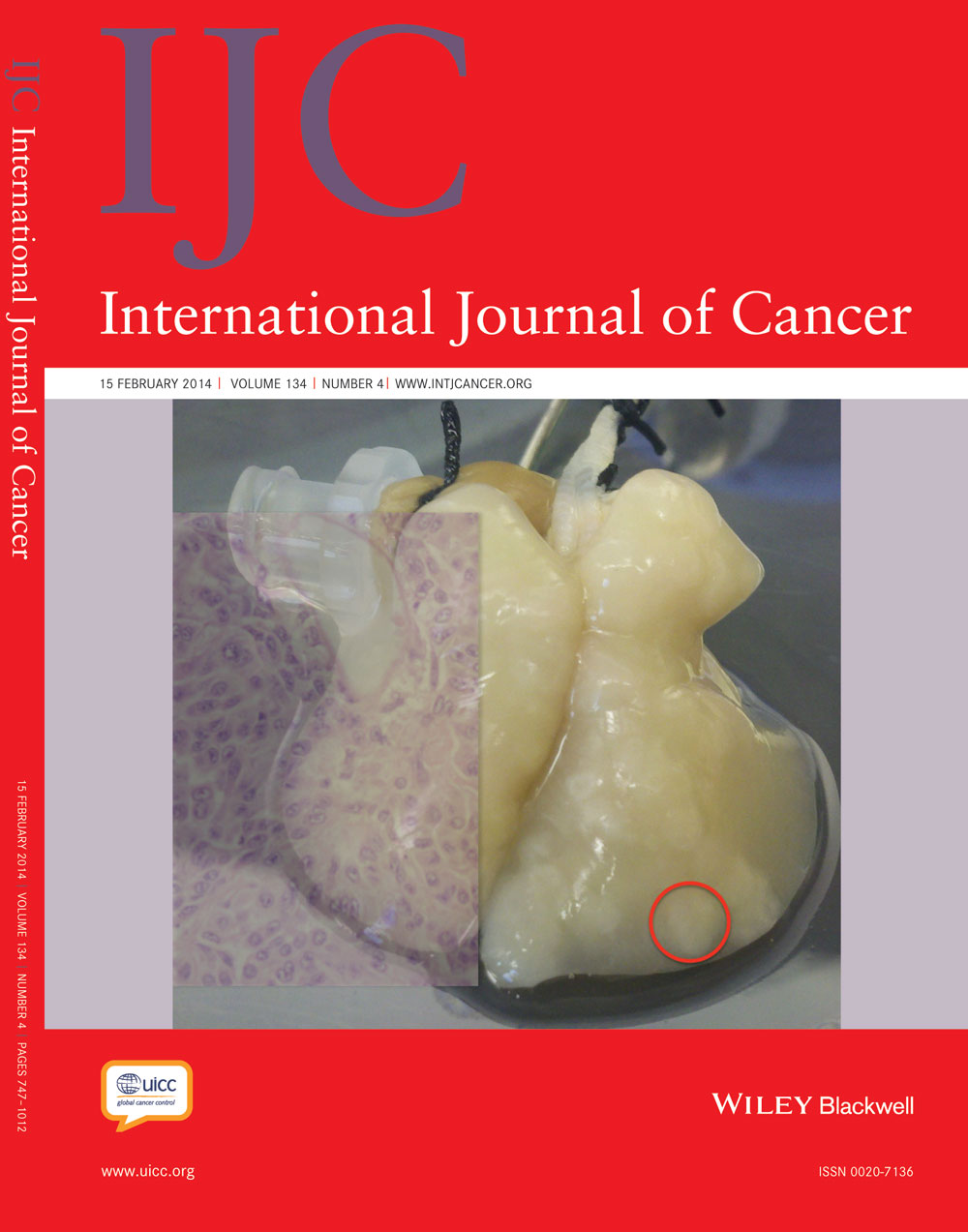Alcohol and smoking and subsequent risk of prostate cancer in Japanese men: The Japan Public Health Center-based prospective study
Abstract
Although alcohol and smoking have not been established as risk factors for prostate cancer, they are important risk factors for other human cancers and potentially major avoidable factors. Alcohol drinkers and smokers might be less likely to get screening, which might lead to attenuation of the positive association. Here, we investigated the association of alcohol drinking and smoking and prostate cancer according to stage, as well as prostate cancer detected by subjective symptoms, in a large prospective study among Japanese men. The Japan Public Health Center-based prospective study (JPHC study) was established in 1990 for Cohort I and in 1993 for Cohort II. Subjects were 48,218 men aged 40–69 years who completed a questionnaire, which included their alcohol and smoking habits at baseline, and who were followed until the end of 2010. During 16 years of follow-up, 913 men were newly diagnosed with prostate cancer; of whom 248 had advanced cases, 635 were organ-localized and 30 were of an undetermined stage. Alcohol consumption was dose-dependently associated with advanced prostate cancer [nondrinkers: reference, 0–150 g/week: hazard ratio (HR) = 1.23, 95% confidence interval (CI) = 0.83–1.82; 150–300 g/week: HR = 1.51, 95% CI = 1.04–2.19; ≥300 g/week: HR = 1.41, 95% CI = 0.97–2.05, p for trend = 0.02]. The positive association was not substantially changed among cancers detected by subjective symptoms. Smoking was inversely associated with prostate cancer among total subjects, but tended to increase the risk of advanced prostate cancer detected by subjective symptoms. In conclusion, abstinence from alcohol and prohibition of smoking might be important factors in the prevention of advanced prostate cancer.
Abstract
What's new?
The impact of alcohol consumption or smoking on prostate-cancer risk has been unclear. Using a large, prospective study, the authors investigated the association between these activities and prostate cancer according to stage at diagnosis. They found that alcohol was associated with advanced disease. Both alcohol and smoking were also associated with advanced prostate cancers that were detected by subjective symptoms. These results suggest that abstinence from alcohol and prohibition of smoking might play an important role in the prevention of advanced prostate cancer.




